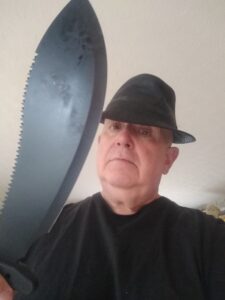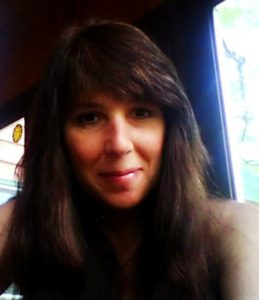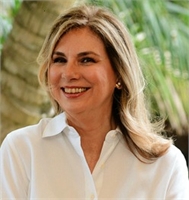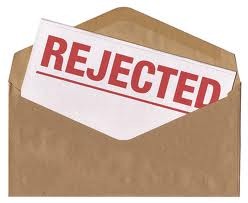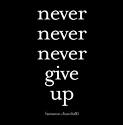
Photo credit: Chris Montgomery – unsplash
By Debbie Burke
Have you ever wanted to chat with the Crime Dogs at The Kill Zone?
Now, your book club, reading or writing group can meet with TKZ authors via Zoom, Facetime, Google Meeting, or Splash.
To give you hints what they might talk about at a virtual meeting, I posed two questions to each member.
#1 – When you’re invited to speak, what do you plan to say?
I accept!
Actually, I would discuss the steps that a writer goes through after finishing their manuscript and before being published.
#2 – What would you like listeners to learn from you?
That they probably should have asked someone else! Seriously, I would hope they would come away encouraged, rather than discouraged. While the process of publishing seems overwhelming, people still do it.
(BTW, we’ve asked Joe to leave his big knife at home when he zooms.)
~~~
Sue Coletta:
Most readers ask about the story behind the story, my characters or subjects (if nonfiction), research, and male vs. female serial killers. I also touch on forensic science (i.e. blood spatter analysis, decomposition, handwriting analysis, forensic psychology, the difference between a psychopath, sociopath, spree killer, etc. The seven stages of serial killing is a big hit, as it allows readers to peek into a killer’s mind. The psychology behind these monsters is a fascinating topic.
For writers: how to create believable characters, show vs. tell, understanding deep point of view, story structure, how to use research without slowing the pace. Also, my experience working with publishers.
Most of all, I want attendees to have fun. Laughter is good for the soul.
~~~
I have several “canned” presentations that are fully described here, but I tailor every presentation to the individual audience. I’ve been doing this for over a quarter of a century, so I can discuss everything from character development to finding an agent to adapting stories for the screen. I’ve done full day seminars and I’ve done 20-minute chats.
I start every presentation by asking attendees what they want to take away from the seminar/meeting. In my experience, people who attend these kinds of presentations have one or two very specific itches that they’d like to have scratched, and my job is to scratch them.
~~~
Most often my presentations start off with the history that inspired my stories and, depending on the audience, delve into my own personal connection to the events or characters in the book. Rarely do I go into the actual writing process but this is often a question I get asked so that’s when it comes up. I want listeners to come away inspired – either by history, reading, or to write their own stories.
~~~
I speak on any of the 7 critical success factors of fiction: plot, structure, character, scenes, dialogue, voice, meaning.
Fiction writing can be learned, if one studies diligently and keeps practicing.
~~~
I’m flexible with what I’ll talk about. If it’s a writer’s group, I can talk about craft, including dialogue, point of view, voice, writing romantic suspense, or just the writing process. I can also share my experiences with small presses, digital presses, and independent publishing.
Book clubs are usually a whole different game, with them wanting to talk about specific books or series, or just general Q&A.
~~~
Garry Rodgers:
From my experience it’d be “talk about what you know.” Mine is crime, forensics, and death investigation and the worlds around them. My schtick would be about Joseph Wambaugh’s saying, “The best stories aren’t about how cops (and coroners) work on cases – it’s how the cases work on cops (and coroners).”
I see it from the reality human angle rather than the non-reality TV CSI stuff.
~~~
My subject would be “Heritage, Writing, and Leaving a Legacy.” The discussion would center on the importance of passing on (in writing) to our descendants what we have learned from our ancestors – history, service, and values.
I would like to convince listeners that “passing the torch” is important, and maybe inspire some young people to become interested in writing.
I added a category: Who is my desired audience? Middle Grade Schools, High Schools, Parochial Schools, Christian Schools, Home School Groups, Senior Citizen Groups, and Writers’ Groups.
~~~
My talks are tailored for the audience. If you want to be entertained, I talk about my light-hearted Dead-End Job mysteries. If the audience likes darker mysteries, I discuss my Angela Richman, Death Investigator mysteries. Death investigators are like paralegals for the medical examiner. They are in charge of the body and work for the ME.
I’ve also taught workshops and seminars for Sisters in Crime, MWA, and the Florida Writers Academy and other groups. Topics include: “Forensics for Mystery Writers.” “How to Murder Your Darlings — editing for writers.” “Who’s Talking? What voice is best for your novel?” and “Mystery Writing for Beginners.” All workshops come with handouts.
I’d like all my audiences to come away entertained, and if they’re taking a workshop, to leave it energized and ready to write.
~~~
 P.J. Parrish (Kris Montee):
P.J. Parrish (Kris Montee):
The need to learn your craft and have patience, especially if you self-publish. A book that’s put out in public before it’s professionally ready will fail.
Perseverance. I’ve run the full gamut of publishing with huge NY legacy publishers, paperback imprints, foreign publishers, and Amazon’s Thomas and Mercer. I changed genres from romance to mysteries, reinventing a stalled career. I regained backlist rights and self-published them, also self-published an original series. Lots of success (bestseller lists and awards) and plenty of failure, but you keep going! You have to have a hard shell, lots of drive, and you can’t let the suckers get you down!
Topics I like to talk about: The difference being showing and telling. Making your settings/locations come alive. Series vs standalones.
~~~
For writing groups—how to edit your own writing, how to survive rejections and keep writing, traditional publication vs. self-publication, tapping the subconscious for stories, confessions of a pantser.
For book clubs—A peek inside the warped mind of a writer. Behind the scenes anecdotes. How does a nice girl like me write such nasty villains? What does an author do when characters won’t behave?
~~~
How do you set up a virtual meeting with a TKZ author? It’s easy!
At the top of the screen on the left side of the menu banner, click on “Request a TKZ Speaker.” Fill out the form and hit submit. We’ll be in touch.
We look forward to “seeing” you for a virtual chat!

